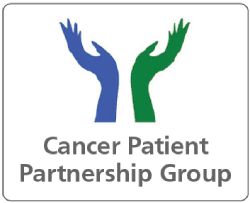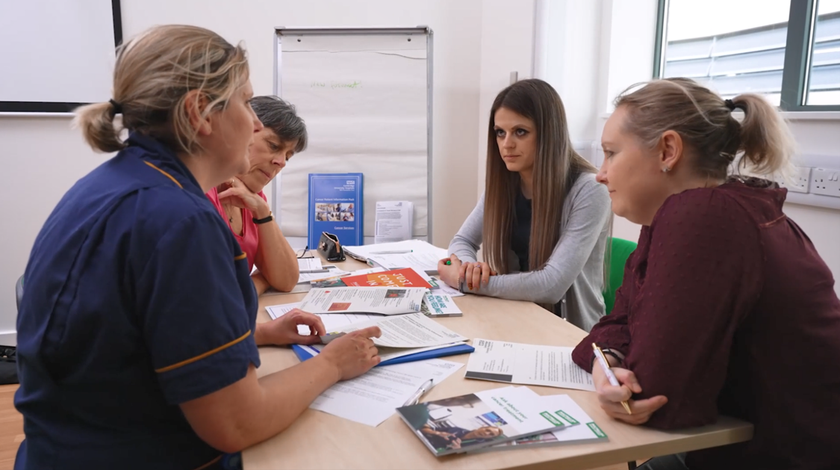You can make a difference to Cancer Services at CUH. If you have experienced cancer services, either as a patient or carer, and want to share your view and work in partnership with staff to improve cancer services, we would love to hear from you.
CPPG and co-production within Addenbrooke’s Cancer Services
Link: https://player.vimeo.com/video/395135251

What is the CPPG?
The Cancer Patient Partnership Group (CPPG) was established in 2012, and consists of patients and carers of varying ages and backgrounds, who work in partnership with hospital staff to improve cancer services by sharing their views and raising concerns relating to cancer care, on patients’ behalf.
What is the aim of the CPPG?
The CPPG aims for patients and staff to work together to improve services and outcomes for cancer patients. This process of working together is also referred to as co-production. The CPPG influences cancer policies and services, and ensures the user and carer perspective is integral to all aspects of cancer-related service developments throughout CUH. The CPPG is the main source of advice for CUH Cancer Board on all matters relating to service user involvement. The CPPG will reach out to communities, promote equality and diversity and encourage and respect different views and beliefs.

What do we do?
We work together as patients, carers and healthcare professionals to:
- Improve patient and carer experiences along the whole cancer pathway - through diagnosis, treatment and (after) post treatment – for cancer patients at CUH
- Plan new services
- Ensure that the patient, carer, family and staff perspectives are heard in relation to any aspect of cancer care at CUH
- Consult with and listen to people whose lives have been affected by cancer to help make positive, lasting changes in services
- Represent the cancer patient in hospital committee and planning meetings, including the CUH Cancer Board and Patient Experience Group (PEG)
- Bring the experiences of people affected by cancer to the attention of those who fund, commission, plan and manage services in the area
- Ensure that patient information is easy to understand and available in alternative formats
- Participate in many different projects, big and small, that benefit from patients’ views

Our success stories
- Campaigning for clinic letters to be written from clinicians directly to patients, with copies to GPs
- Contributing to the redesign of the Oncology Outpatients Department
- Contributing to the development of a new finger-prick test for patients to detect the possibility of neutropenic sepsis
- Designing and updating the contents of information packs for new cancer patients
- Co-designing and contributing to the Cancer Service webpages on the CUH Website
- Co-designing the content and starring in the Welcome to Cancer information videos which can be found on the CUH cancer webpages
Interested in joining?
- You can be any age from 16+
- You can be a patient, carer or family member with experience of accessing cancer services
- You don’t need any special skills

During my cancer treatment I was aware of the huge debt I owed to the medical team. I really felt I needed to give something back and decided to join CPPG so that I could work with clinicians and other patients to improve cancer services
Helene - Patient member

How you can join in
Contact us
- Phone: 07729 105550
- Email CPPG

Gina Edwards
Macmillan co-production lead for cancer services

